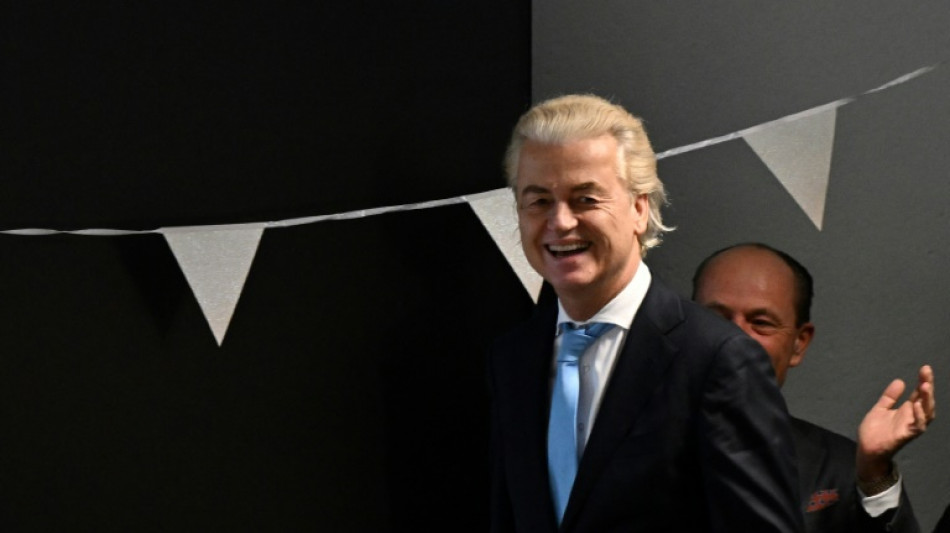
-
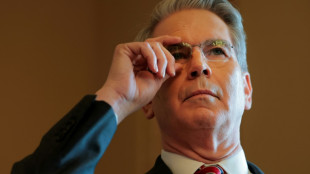 Markets boosted as Trump softens tariff pain for auto firms
Markets boosted as Trump softens tariff pain for auto firms
-
Suryavanshi, 14, dubbed 'next superstar' after batting records tumble
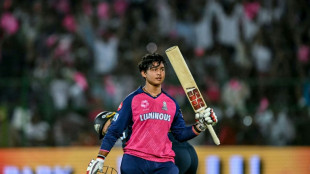
-
 Australian doubles player Purcell accepts 18-month doping ban
Australian doubles player Purcell accepts 18-month doping ban
-
Kashmir attack unites political foes in India, Pakistan
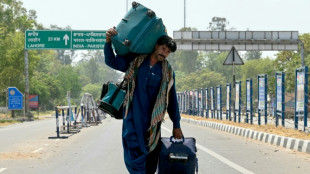
-
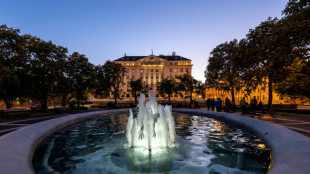 Croatia hotel toasts dizzying century of stars, sovereigns and champagne
Croatia hotel toasts dizzying century of stars, sovereigns and champagne
-
Kenya's desperate need for more snake antivenom

-
 Les Kiss in frame with Wallabies set to name new coach
Les Kiss in frame with Wallabies set to name new coach
-
Cavaliers scorch Heat, Warriors down Rockets in thriller

-
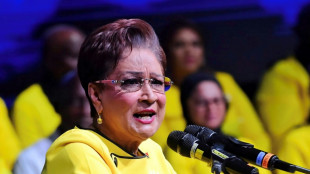 Opposition wins Trinidad and Tobago election, returning Persad-Bissessar as PM
Opposition wins Trinidad and Tobago election, returning Persad-Bissessar as PM
-
Study sheds light on origin of Australia's odd echidna

-
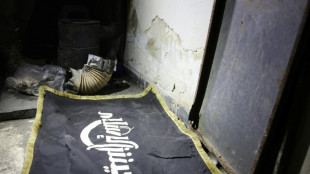 France tries Syrian Islamist rebel ex-spokesman on war crime charges
France tries Syrian Islamist rebel ex-spokesman on war crime charges
-
Trump boasts of 'fun' 100 days, but Americans disenchanted

-
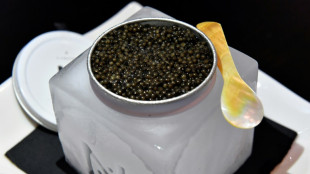 Elitist no more, caviar is turning casual
Elitist no more, caviar is turning casual
-
Amnesty accuses Israel of 'live-streamed genocide' against Gaza Palestinians

-
 Inter slump puts season at risk ahead of daunting Barca trip
Inter slump puts season at risk ahead of daunting Barca trip
-
Power returns to most of Spain, Portugal after massive blackout
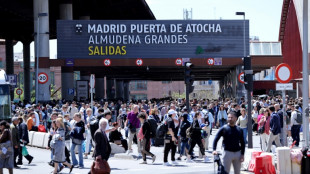
-
 'I have hope': Vietnam Babylift survivor's search for birth mother
'I have hope': Vietnam Babylift survivor's search for birth mother
-
US climate assessment thrown into doubt as Trump dismisses authors

-
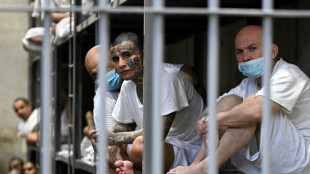 Venezuelan president slams US over little girl's 'abduction'
Venezuelan president slams US over little girl's 'abduction'
-
Hard-right upstarts eye big gains in local UK polls
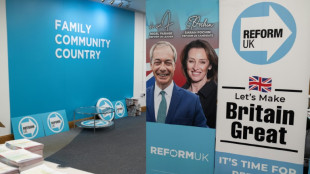
-
 Skulls, smoke and spirits: Thai ceremony for the unclaimed dead
Skulls, smoke and spirits: Thai ceremony for the unclaimed dead
-
Canada's Carney: political newcomer who says he's best in a crisis
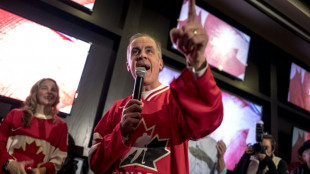
-
 Cavaliers scorch Heat to seal series sweep
Cavaliers scorch Heat to seal series sweep
-
Dead salmon create election stink on Australian island
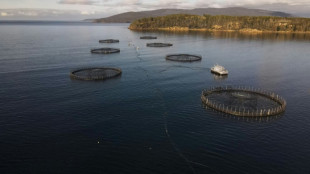
-
 Mic check: Singapore's podcast boom amplifies opposition voices
Mic check: Singapore's podcast boom amplifies opposition voices
-
Markets rise as traders gear up for earnings, key jobs data
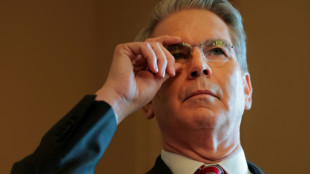
-
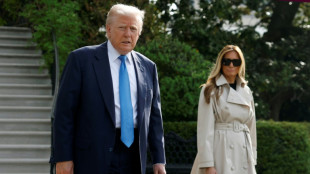 Congress passes 'revenge porn' ban, sending it to Trump
Congress passes 'revenge porn' ban, sending it to Trump
-
Spain and Portugal work to restore power after massive blackout
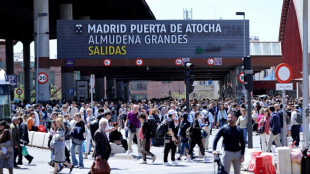
-
 Less-thirsty rice offers hope in drought-stricken Chile
Less-thirsty rice offers hope in drought-stricken Chile
-
Yamal stardust could give Barca edge on Inter Milan

-
 Coca-Cola Europacific Partners plc Announces Q1 Trading Update & Interim Dividend Declaration
Coca-Cola Europacific Partners plc Announces Q1 Trading Update & Interim Dividend Declaration
-
Trump targets US 'sanctuary cities' in migrant crackdown

-
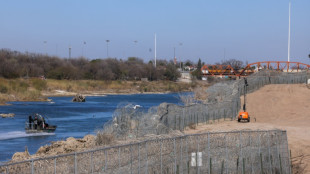 Mexico agrees to send water to US after Trump threatens tariffs
Mexico agrees to send water to US after Trump threatens tariffs
-
Amazon launches first Starlink-rival internet satellites

-
 US lost seven multi-million-dollar drones in Yemen area since March
US lost seven multi-million-dollar drones in Yemen area since March
-
Bucks blow as Lillard suffers torn Achilles: team

-
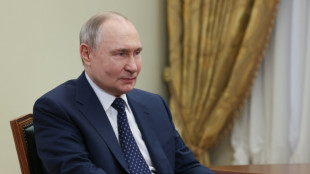 Putin orders three-day truce amid new US warnings
Putin orders three-day truce amid new US warnings
-
Real Madrid's Ancelotti agrees Brazil deal - reports
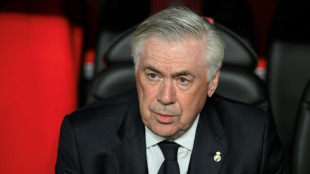
-
 ChatGPT adds shopping help, intensifying Google rivalry
ChatGPT adds shopping help, intensifying Google rivalry
-
Global stocks mixed amid trade hopes as markets await tech earnings

-
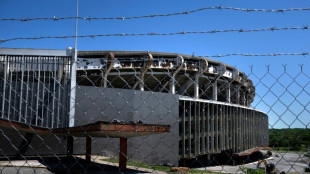 Commanders heading back to D.C. after inking $3.7 bln stadium deal
Commanders heading back to D.C. after inking $3.7 bln stadium deal
-
US warplane falls off aircraft carrier into Red Sea

-
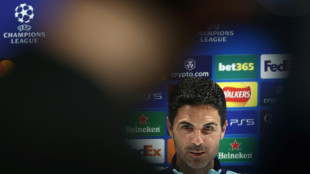 Feisty Arteta urges Arsenal fans to 'bring boots' to PSG Champions League clash
Feisty Arteta urges Arsenal fans to 'bring boots' to PSG Champions League clash
-
Bucks blow as Lillard suffers ruptured Achilles: reports

-
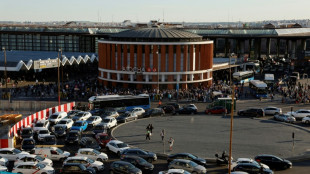 No power, no phone, no transport -- Spain in a panic
No power, no phone, no transport -- Spain in a panic
-
US warplane went overboard into Red Sea: Navy

-
 'Like a dream' as IPL's 14-year-old Suryavanshi becomes youngest to hit T20 ton
'Like a dream' as IPL's 14-year-old Suryavanshi becomes youngest to hit T20 ton
-
Luis Enrique says PSG have improved since October Arsenal loss
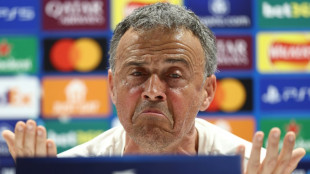
-
 UN food, refugee agencies warn of huge cuts after funding losses
UN food, refugee agencies warn of huge cuts after funding losses
-
Trump trade war dominates BRICS meeting in Brazil


Wilders' win sets 'textbook' example for European populist right: analysts
Anti-EU, anti-immigration firebrand Geert Wilders' surprise victory in the Dutch general election this week shows right-wing populism's success in gobbling up support from traditional conservative parties and taking its pet themes mainstream, experts said.
Whether in power -- often in coalition -- in countries including Italy, Hungary or Slovakia, or steadily gaining, as in France, Germany and Spain, momentum appears on the side of far-right parties.
"Election after election, we're seeing the far right win immense successes," French MEP Raphael Glucksmann told broadcaster France 2 on Friday.
"The European Union is in danger of death from within and without," he warned.
In recent months, observers "were very focused on elections in large countries in the EU... Spain this summer or Poland in October" where populists suffered setbacks, said French political scientist Thierry Chopin.
"(But) the reasons that explain the strength or even the rise of far-right parties in some European countries have not gone away," added Chopin, a researcher at France's Jacques Delors Institute.
Rooted in nationalism and opposition to immigration, the rise of far-right parties began in the late 1970s, surging in 2015 when hundreds of thousands of Syrians fleeing civil war arrived across the continent.
Geert Wilders' career has been built on anti-Islam rhetoric.
Italy's Giorgia Meloni mostly campaigned on anti-immigration themes.
And Sweden is governed by a coalition supported by the far-right that promises to reduce arrivals.
France, Germany and Spain's politics are often dominated by rows about identity and immigration.
- Anti-elites -
In the Netherlands, the traditional centre-right VVD party "had no power to set the terms of debate on Wilders' preferred themes", said Johannes Hillje, a German electoral strategist and author of "Propaganda 4.0: how far-right populists do politics".
"Other parties in the conservative spectrum across Europe have lost their hegemony on the right."
Chopin pointed to classic themes of populist right politics in Wilders' campaign -- anti-elite rhetoric that breaks with bipartisan consensus, fears about immigration and cultural change, and questioning of welfare and redistribution.
"Times of economic and social insecurity favour far-right parties," said Gilles Ivaldi, a researcher at Paris' Sciences Po university.
During the Covid-19 pandemic, the groups "mobilised a lot of people based on fear, frustration and rejection of the health measures... banking support" for the future, he added.
The Netherlands was also "a textbook example of how not to deal with the radical right", as other parties and the media took their policy positions mainstream, Hillje said.
In the Netherlands, VVD leader Dilan Yesilgoz left the possibility of a coalition with Wilders open before the election, only to rule out being a junior partner when he won.
"Everything they did made Wilders stronger and contributed to his electability," Hillje argued.
- Increasingly mainstream -
Wilders and Italian premier Meloni have followed the "de-demonisation" strategy of French far-right figurehead Marine Le Pen, moderating their rhetoric when it looks electorally useful.
"It's not that they've changed their positions, but they express them a little differently to be more appealing, to overcome the emotional barrier to the middle ground," Hillje said.
Meloni has backed Ukraine and trimmed her hostility to the EU, with one French diplomat recently telling AFP she had been "a welcome surprise" on international issues.
"(But) in domestic politics she's doing just what she promised, cutting welfare benefits, taking a hard line against refugees," Hillje pointed out.
"All these parties signal respectability. They have learned or are learning how to exercise power," Ivaldi said -- while cautioning against handing them "a democratic blank cheque".
Many mainstream conservative parties are also absorbing far-right ideas or considering cooperation.
Politicians from Germany's CDU sometimes openly mull regional coalitions with the far-right Alternative for Germany (AfD), while France's right-wing Republicans often try to outdo the far-right National Rally (RN) in shows of toughness against migrants.
At the European level, "an alliance between the far right and the (centre-right) European People's Party (EPP) is not impossible", Ivaldi said.
"That would be a big shift... on migration policy but also on the environment" given far-right denials of climate change.
Ivaldi nevertheless warned against overstating the common ground between far-right parties in different European countries.
"There are very clear fault lines" on support for or hostility to Russia, economics and values, he said.
"Fundamentally, what holds these right-wing populists together is shared enemies and things they all reject, like migration or ambitious climate policies," Hillje said.
"There are conflicts within this camp that will not lead to unified policy, and that may be the hope for the mainstream camp in Europe".
P.Stevenson--AMWN

